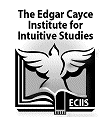| Edited by HENRY REED, Ph.D. |
March 24, 2008
|

Creativity & Depression
By Eric Maisel
For more than 25 years I've been looking at the realities of the creative life and the make-up of the creative person in books like Fearless Creating, Creativity for Life, Coaching the Artist Within, and many others. A certain idea began to percolate in my mind: that creative people are people who stand in relation to life in a particular way and see themselves as active meaning-makers rather than as passive folks with no stake in the world and no inner potential to realize. This orientation makes meaning a certain kind of problem for them—if, in their own estimation, it is important that they make meaning and they find themselves not making sufficient meaning, they get down. They get blue. I began to see that this "simple" dynamic helped explain why so many creative people—I would say all of us at one time or another time—suffer from the blues. We suffer this way because, for us, meaning constitutes a special problem. It seemed to me that the depression that we see in creative people was best conceptualized as existential depression, rather than as biological, psychological, or social depression. This meant that the treatment also had to be existential in nature. You could medicate a depressed artist but you probably weren't really getting at what was bothering him, namely that the meaning had leaked out of his life and, as a result, that he was just going through the motions, paralyzed by his meaning crisis. What does this mean for you? It means that if you're a creative person, then when you're depressed, especially if you are severely depressed, if the depression won't go away, or if it comes back regularly, you owe it to yourself to get a medical work-up, because the cause might be biological and antidepressants might prove valuable. You owe it to yourself to do psychological work (hopefully with a sensible, effective therapist), as there may be psychological issues at play. But you also owe it to yourself to explore whether your depression might be existential in nature and to see if your "treatment plan" should revolve around some key existential actions like reaffirming that your efforts matter and reinvesting meaning in your art and your life. I think it is a great help simply to have a "vocabulary of meaning" and to have language to use so that you know what is going on in your life. If you can't accurately name a thing, it is very hard to think about that thing. That's why I present a whole vocabulary of meaning in The Van Gogh Blues and introduce ideas and phrases like "meaning effort," "meaning drain," "meaning container," and many others. Without benefit of such a vocabulary, it is easy to misattribute the cause of your depression. With such a vocabulary in place, you have the chance to quickly and accurately identify your current problem. For instance, when you get a rejection letter on your latest novel, you want to be able to say, "Oh, this is a meaning threat to my life as a novelist" and instantly reinvest meaning in your decision to write novels. If you don't think that way and speak that way, it is terribly easy to let that rejection letter precipitate a meaning crisis and get you seriously blue. By reminding yourself that is your job not only to make meaning but also to maintain meaning when it is threatened, you get in the habit of remembering that you and you alone are in charge of keeping meaning afloat—no one else can or will do that for you. Having a vocabulary of meaning in place to talk about these matters is a crucial part of the process. I'm interested in everything that makes a creative person creative and I'm also interested in every challenge that we creative people face. I believe that we have special anxiety issues. I believe that we stand in a certain relationship to addiction. I'm fascinated by our particular relationship to obsessions and compulsions. Everything that we are and do as creative people interests me—that's my "meaning agenda"! I've received countless emails from artists all over the world thanking me for identifying "our brand" of depression and for providing them with a clear and complete program for dealing with that depression. It is my hope that my new book The Van Gogh Blues will reach even more creative folks—and the people who care about them. * Based on the book The Van Gogh Blues: A Creative Person's Path Through Depression © 2008 by Eric Maisel. Printed with permission of New World Library, Novato, CA. Eric Maisel, Ph.D., is America's foremost creativity coach and is widely known as the creativity expert. To order this book from Amazon.com, click here! Henry Reed is offering a special healing retreat, "The Creative Spirit Revival," each year around May Day. For further information, see www.creativespirit.net/revival |




